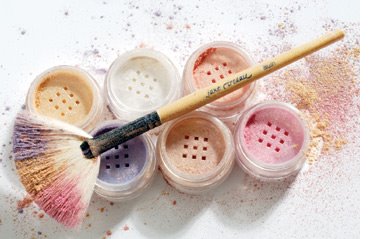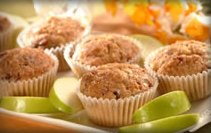 If you’re currently drinking tea for it’s health giving benefits – including high levels of heart-healthy antioxidants – there’s something that should not go in the cup! Here’s what you need to know!
If you’re currently drinking tea for it’s health giving benefits – including high levels of heart-healthy antioxidants – there’s something that should not go in the cup! Here’s what you need to know!
By Colette Bouchez
If you’re drinking tea for it’s health-giving antioxidant properties, hold onto your cozies: If you’re adding even a little bit of milk to your cup you could be cutting the benefits by as much as 25%! ,
That’s the news according to new findings just published in Nutrition Research. Indeed, researchers found that adding any kind of milk to tea dramatically reduces it’s antioxidant potential – with some types of milk clearly worse than others.
“We accept the hypothesis that different volumes of bovine milk and milk of varying fat content affect the total antioxidant capacity of tea,” wrote lead authors Lisa Ryan and Sébastien Petit from the Functional Food Center at Oxford Brookes University where the research was conducted.
“The degree to which the addition of milk reduces the antioxidant capacity of black tea depends on the amount added and the fat content of the milk,” they added.
Now if you’re thinking it’s probably the high fat milk that caused the most problems, guess again! In a surprising health twist the study found it’s actually skimmed milk that appeared to exert the greatest reduction of antioxidant properties when compared to fat-free milk or whole milk.
This is key since it is believed that health-giving powers of both black and green tea are linked to it’s antioxidant levels. These are natural compounds ( also found in many fruits and vegetables) that help battle free radicals – unhealthy cells that help initiate the destruction of healthy cells and in the process also may play a role in initiating some diseases.
Indeed, a number of major studies have found that the antioxidant compounds found in all tea, but most prominently in green tea, can battle free radical damage in the process help reduce the risk of Alzheimer’s disease, as well as certain cancers, and my help improve overall cardiovascular health.
Tea Without Milk Will Optimize Benefits
In creating and executing the new study, researchers analyzed the antioxidant capacity of 5 different brands of black tea, and tested each tea with varying volumes of whole milk, semi-skimmed milk, and skimmed milk.
Using a system known as the FRAPP assay ( a way of measuring the antioxidant potential of a food or beverage) the researchers found that the addition of milk in quantities of 10, 15, and 20 mL of whole, semi skimmed, and skimmed cow’s milk appeared to work directly on two specific compounds known as theaflavins and thearubigins. By reducing their levels substantially, the milk reduced the overall antioxidant levels of the tea.
However, the researchers also found that the addition of milk did not appear to reduce concentrations of two other key antioxidant compounds known as catechins and quercetin .
That said, a study published in 2007 in the European Heart Journal. Here doctors found that milk blocked health effects of catechins, particularly in blood vessels, in blood vessels, where it’s believed to be helpful in reducing clot formation by increasing blood flow. So in this respect, adding milk to tea may be even more worrisome, than this new study reveals.
At the same time, adding a squeeze of fresh lemon to your tea may be just what the doctor ordered! As one of the fruits highest in both vitamin C and antioxidant protection, research suggests that adding lemon to tea may actually boost the health benefits of every sip!
Non Dairy Creamer Bad For Coffee?
If tea is not, well, your cup of tea, then the good news is that coffee also contains it’s fair share of antioxidant protection. It’s key health-giving compounds include the antioxidants caffeic acid, ferulic acid and isoferulic acid – and the good news here is that studies conducted by Nestle found that adding milk to instant coffee had no negative impact on the antioxidant potential.
Unfortunately, however, the same may not be true for non-dairy creamers – at least according to one small study. Indeed, in research published in The Journal of Nutrition, levels of both caffeic acid and ferulic acid were reduced with the addition of non-dairy creamers and sugar. To date, however, the results have not been duplicated and there are no large scale studies suggesting that non-dairy creamers can reduce coffees health-giving benefits.
For round the clock health, beauty and style advice for women over 40 visit RedDressDiary.com.
Or check out CheapChicDiary.com for money saving beauty and style tips!
Copyright by Colette Bouchez 2009 - All Rights Reserved.
In addition to US Copyright, the text of this RedDressDiary article is licensed under a Creative Commons Attribution-ShareAlike 3.0 License. All formatting and style elements of this page are not available under this license, and Colette Bouchez retains all rights in those elements.
Sunday, March 7, 2010
CAUTION: Don't Do THIS To Your Cup of Tea!
Subscribe to:
Post Comments (Atom)




































No comments:
Post a Comment